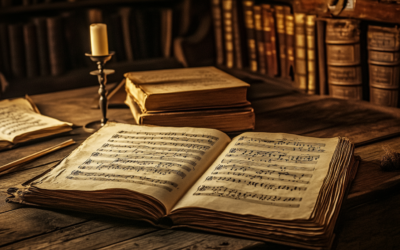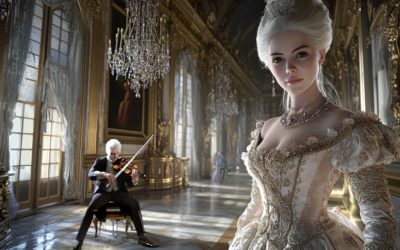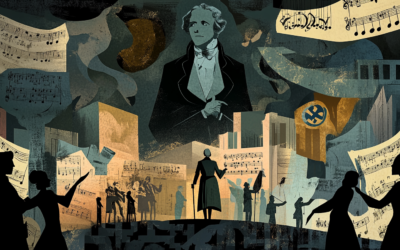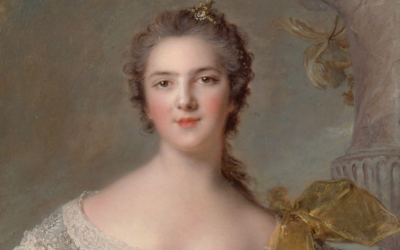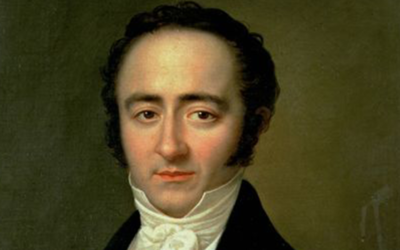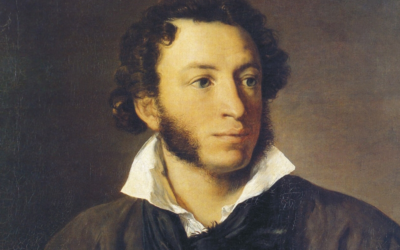The London Notebook
Mozart's Early Missteps and Misconceptions
The London Notebook exposes the limitations of young Mozart’s compositional skills and questions the myth of his early genius. His simplistic pieces, fraught with errors, reveal a child still grappling with fundamental musical concepts.
Mozart: The Fall of the Gods
This book offers a fresh and critical look at the life of Wolfgang Amadeus Mozart, challenging the myths that have surrounded him for centuries. We strip away the romanticised image of the “natural genius” and delve into the contradictions within Mozart’s extensive biographies. Backed by nearly 2,000 meticulously sourced citations, this work invites readers to explore a deeper, more complex understanding of Mozart. Perfect for those who wish to question the traditional narrative, this biography is a must-read for serious music lovers and historians.
“The celebrated music from this period may owe more to Leopold’s influence than to Wolfgang’s own abilities.”
Mozart: The Fall of the Gods
In September 1764, Leopold Mozart penned a letter to Lorenz Hagenauer from Chelsea, revealing that he had been gravely ill since early July. During this period, young Wolfgang Mozart, then only eight years old, was compelled to pause his concert tours and spend nearly two months in Chelsea. This hiatus led Wolfgang to compose a collection of forty-three simple keyboard pieces, recorded in a notebook Leopold titled ‘di Wolfgango Mozart à Londra’ (by Wolfgango Mozart in London).
These compositions are often dismissed as mere exercises for a child, lacking the complexity and sophistication associated with Mozart’s later works. Unlike Beethoven’s sketchbooks, which are revered for their insights into his compositional processes, Mozart’s London Notebook reveals the young composer’s experimental attempts at various forms and structures, but with little success. The period of inactivity due to Leopold’s illness and Wolfgang’s lack of keyboard access led him to create pieces that, while intended as exercises, are frequently criticised for their lack of harmonic sophistication and compositional maturity.
Critics like Abert have downplayed the significance of these works, suggesting they are nothing more than trivial exercises. Yet, these pieces provide valuable insight into the music that captivated audiences of the time. However, it is crucial to acknowledge that some of these pieces might not even be by Mozart himself; they could have been composed by others or inspired by the music Wolfgang heard during his travels. The truth is, many of the pieces in the London Notebook are rudimentary and exhibit common errors for a child of his age. They display parallel octaves, fifths, and dissonant sequences, and reveal a general lack of advanced compositional techniques such as counterpoint and complex harmony.
Moreover, the praise often attributed to Mozart’s early works is questionable. The celebrated music from this period may owe more to Leopold’s influence and contributions than to Wolfgang’s own abilities. The claim that Mozart had achieved significant compositional milestones at such a young age is contradicted by the evidence presented in this notebook. It suggests that the acclaim for Mozart’s early works may be misplaced and more accurately reflects Leopold’s organisational and compositional role.
The London Notebook’s simplistic pieces and frequent errors highlight the limitations of a young Mozart who was still developing his musical skills. Claims that Mozart could have composed complex fugues or improvised sophisticated music with Johann Christian Bach are dubious at best. The reality of these early compositions demonstrates that young Wolfgang’s abilities were far from the prodigious genius later attributed to him.
In the end, the London Notebook offers a sobering look at Mozart’s early compositions, revealing a child artist grappling with musical concepts that would only later be refined. The current critical editions that attempt to correct these youthful mistakes often replace Mozart’s original intent with more polished versions, thus obscuring the true nature of his early work.
You May Also Like
The Kolb Concerto: A Mozartian Mirage?
The Kolb Concerto’s dubious origin and poor musical quality expose yet another myth in the Mozartian canon. If this is the work of a genius, then perhaps we’ve been fooled for centuries.
The Adélaïde Deception: Mozart’s “Lost” Violin Concerto and the Art of Musical Forgery
In the early 20th century, the “discovery” of Mozart’s sixth violin concerto in Paris created a sensation. Dubbed the Adélaïde Concerto and supposedly written for Madame Adélaïde of France, it was hailed as a testament to Mozart’s genius. However, as the story unfolds, it becomes clear that this masterpiece was not the work of the child prodigy but rather a carefully orchestrated hoax by Marius Casadesus. Despite its unmasking as a forgery, the concerto continues to captivate audiences, raising questions about authenticity and the music industry’s willingness to deceive for profit.
Mozart and the Nationalist Illusion: The 1931 Festival and Its Legacy
The Salzburg Festival, far from being a mere celebration of Mozart’s genius, was born out of nationalist ambitions during a turbulent period in Austro-German history. Conceived by figures like Max Reinhardt, Heinrich Damisch, and Friedrich Gehmacher, the festival was deeply rooted in ultranationalistic ideals, transforming Mozart’s legacy into a tool for cultural dominance. The truth behind its founding has long been obscured, but the primary sources tell a different, darker story.
K.6 and K.7 Sonatas: A Fabricated Genius?
The earliest sonatas of Wolfgang Amadeus Mozart, K.6 and K.7, are traditionally seen as proof of his precocious genius. But as we explore the murky origins of these works, we find that they may be more a product of Leopold Mozart’s ambition than Wolfgang’s musical talent. The truth, as always, lies somewhere between the notes.
Georg Nissen and the Missing Notebooks – Part II
This second part delves deeper into Georg Nissen’s scheme to expose the truth about Mozart’s death, and the roles of Constanze Mozart and her sons in keeping it buried. As new details emerge, the mystery surrounding the famous composer’s final days grows even darker, with powerful forces potentially at play.
Mozart and Salieri
Pushkin does not see Salieri as a mere mediocre. In fact, Salieri embodies the struggle of the artist, much like Michelangelo, who reaches greatness through relentless effort. Pushkin himself identifies with both Mozart and Salieri, but he emphasises that true art demands work, discipline, and sacrifice. In poisoning the Mozartian element within himself, Salieri performs a service to art, freeing it from the frivolity of effortless genius. ‘Can genius and malice coexist?’ Pushkin’s answer is complex, but in the end, Salieri’s act seems to affirm that true creation lies in the hands of those who strive.


